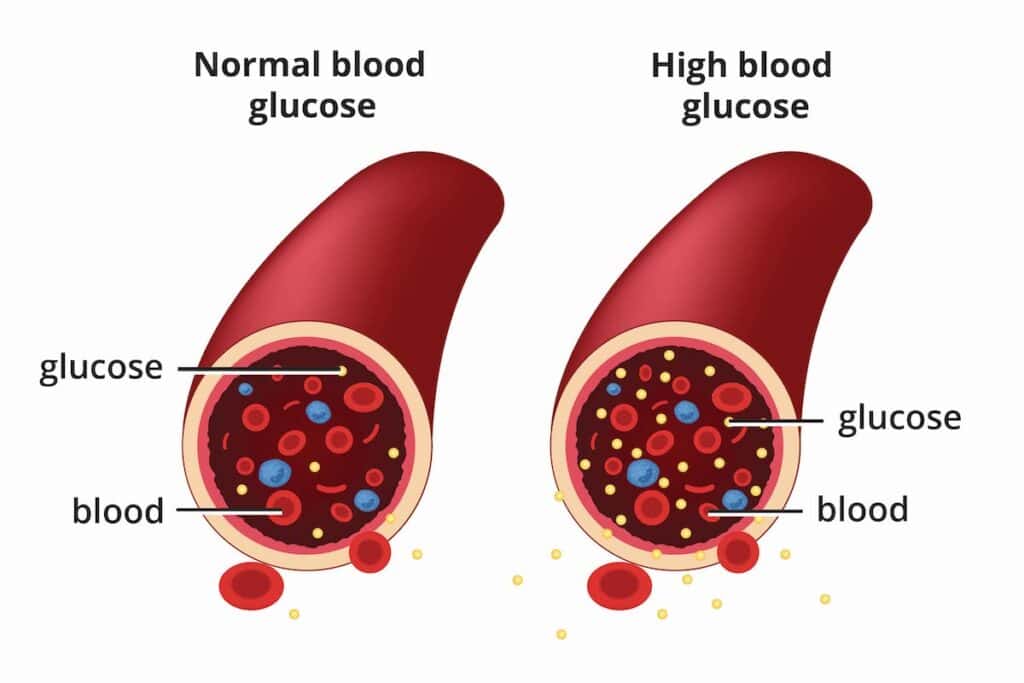Table of Contents
The Sugar Epidemic: A Global Concern
In today’s fast-paced world, where convenience often takes precedence over health, it’s crucial to be aware of the hidden dangers lurking in our diets. One such peril, often disguised as an innocent pleasure, is SUGAR. Sugar, a seemingly harmless additive found in countless food and beverage products, has become a major health concern worldwide. The statistics are alarming – obesity rates are soaring, diabetes is on the rise, and heart diseases continue to claim lives. It’s time to recognize sugar for what it truly is: a silent predator.
The pervasive availability of sugary treats in today’s society has led to an epidemic of excessive sugar consumption. It’s not just the sugar bowl on your kitchen counter; sugar hides in processed foods, sugary drinks, and even seemingly healthy options like yogurt and granola bars. The result? A population addicted to sugar and experiencing unprecedented health issues.
Exploring the Diverse Realms of Diabetes
Diabetes, a multifaceted ailment, unfurls its myriad forms, encompassing type 1, type 2, and the intriguing gestational diabetes.
Type 1 Diabetes Type 1 diabetes, a condition where your body’s insulin production dwindles to insignificance, as the immune system wages a relentless assault on your pancreas’ insulin-producing cells. Typically a diagnosis for the youth, it can manifest at any age. To sustain life, those afflicted must dutifully administer insulin each day.
Type 2 Diabetes Type 2 diabetes, a perplexing malady, arises when the body’s cells resist insulin’s embrace. While the pancreas may produce insulin, it proves insufficient to maintain blood glucose levels within the confines of normalcy. This form reigns as the most prevalent among the diabetes family. Predisposition factors, such as excess weight or hereditary lineage, amplify the risk. Strikingly, type 2 diabetes can rear its head at any stage, even in childhood.
Mitigating the risk of type 2 diabetes beckons through understanding its precursors and embracing a healthier lifestyle. Initiatives like weight loss or thwarting weight accrual emerge as potent tools in this endeavor.
Gestational Diabetes Gestational diabetes, a cryptic variation, takes root during pregnancy’s delicate phase. Often, it mysteriously vanishes after childbirth. However, an ominous shadow looms; those who’ve tasted gestational diabetes may face a higher probability of type 2 diabetes in the long run. In some instances, the diabetes detected during pregnancy aligns more with type 2 diabetes.
Prediabetes Prediabetes, an intermediate realm, encompasses individuals with glucose levels beyond the ordinary but insufficient to warrant a type 2 diabetes diagnosis. Those grappling with prediabetes confront an augmented risk of future type 2 diabetes, along with an elevated susceptibility to heart disease compared to those with standard glucose levels.
Other Diabetes Varieties In the esoteric domain of diabetes, a rarer strain, monogenic diabetes, takes root due to a solitary genetic mutation. Furthermore, diabetes may manifest post-pancreatic surgery or pancreatic damage attributed to conditions like cystic fibrosis or pancreatitis.

The Sugar Trap
Hidden sugar is the real menace. It’s not just about the sugar you add to your coffee or sprinkle on your cereal; it’s the sugar cunningly concealed in processed foods, soft drinks, and even seemingly healthy items like yogurt. These added sugars, often listed under various aliases like high fructose corn syrup or maltose, contribute significantly to our daily sugar intake, without us even realizing it.
A Weighty Issue
One of the most apparent consequences of excessive sugar consumption is weight gain. When you consume sugar, your body converts it into glucose, which triggers the release of insulin. Insulin’s primary role is to transport glucose into cells to provide energy. However, when there’s an excess of glucose in the bloodstream due to high sugar intake, insulin stores it as fat, leading to weight gain, especially around the abdomen.
A Sweet Tooth and Mental Health
While most people are aware of the physical implications of excessive sugar intake, the impact on mental health is often overlooked. Sugar highs and subsequent crashes can wreak havoc on your mood and overall mental well-being. It can lead to feelings of irritability, anxiety, and even depression. Additionally, excessive sugar consumption has been linked to an increased risk of cognitive decline and conditions like Alzheimer’s disease.
Dental Decay: The Sugary Smile Saboteur
Your dentist’s least favourite topic – dental health. Sugar is the primary culprit behind cavities and dental decay. Harmful bacteria in your mouth thrive on sugar, producing acids that erode tooth enamel and lead to tooth decay. Cutting back on sugar can significantly reduce your risk of dental issues, ensuring you maintain that bright, healthy smile.
Heart Matters
Heart disease is a leading cause of death worldwide, and excessive sugar consumption plays a significant role in its development. High sugar intake can lead to obesity, high blood pressure, and increased levels of harmful triglycerides—all risk factors for heart disease. Reducing sugar in your diet can lower these risks and promote cardiovascular health.
Sugar’s Impact on Liver
The liver is a remarkable organ responsible for detoxifying your body. However, when overloaded with sugar, it can develop a condition known as non-alcoholic fatty liver disease (NAFLD). NAFLD can progress to more severe liver conditions, such as cirrhosis and liver cancer. Reducing sugar intake is crucial for maintaining a healthy liver.
Sugar and Skin Woes
Your skin is a reflection of your overall health, and excessive sugar consumption can manifest on your skin’s surface. High sugar intake has been linked to acne and premature aging. It accelerates the formation of advanced glycation end-products (AGEs), which can lead to collagen and elastin breakdown, resulting in wrinkles and sagging skin.
Taking Control of Your Health
Now that we’ve explored the various ways sugar can wreak havoc on your health, it’s essential to take control of your diet. Here are some practical steps to reduce your sugar intake and improve your overall well-being:
1. Read Labels
When grocery shopping, carefully read product labels. Sugar hides under various names, including sucrose, high fructose corn syrup, and agave nectar. Being informed about these aliases can help you make healthier choices.
2. Opt for Natural Sweeteners
Instead of refined sugars, consider using natural sweeteners like honey, maple syrup, or stevia in moderation. These alternatives provide sweetness with fewer adverse health effects.
3. Cook at Home
Preparing meals at home allows you to control the ingredients and avoid hidden sugars commonly found in restaurant dishes and takeout.
4. Choose Whole Foods
Opt for whole foods like fruits, vegetables, lean proteins, and whole grains. These options are naturally lower in sugar and offer a myriad of health benefits.
5. Drink Wisely
Cut down on sugary beverages like sodas, energy drinks, and excessive fruit juices. Opt for water, herbal teas, or unsweetened alternatives.
6. Educate Yourself
Stay informed about nutrition and make conscious choices. Educating yourself about the sugar content in different foods empowers you to make healthier decisions
7. Gradual Reduction
If you’re used to a high-sugar diet, aim for gradual reduction. Cutting sugar completely can be challenging, but small changes over time can lead to significant improvements in your health.
The Road to a Healthier You
Sugar, often referred to as “sweet poison,” poses a significant threat to your health. From weight gain to dental decay, mental health issues to heart disease, its negative impact is far-reaching. By making conscious choices to reduce sugar intake and opting for healthier alternatives, you can safeguard your well-being and enjoy a healthier, happier life. To reclaim your health and well-being, it’s crucial to be vigilant about your sugar intake. Read labels, opt for natural sweeteners, choose whole foods, and stay informed. By taking these steps, you can break free from the sweet shackles of sugar and embark on a journey towards a healthier, happier you.










